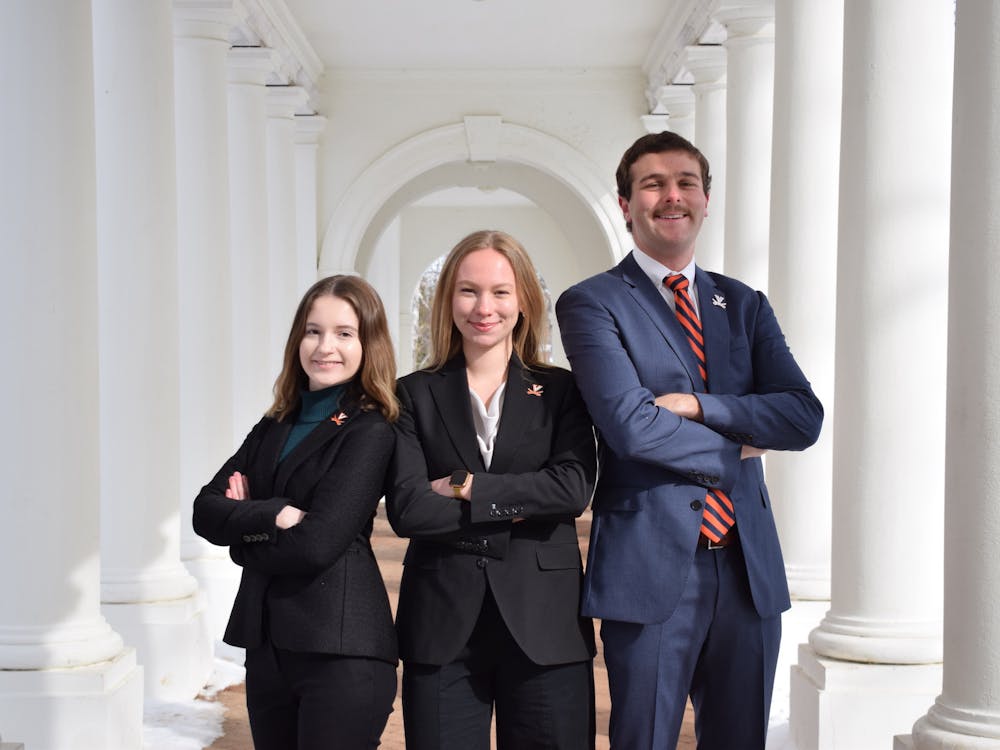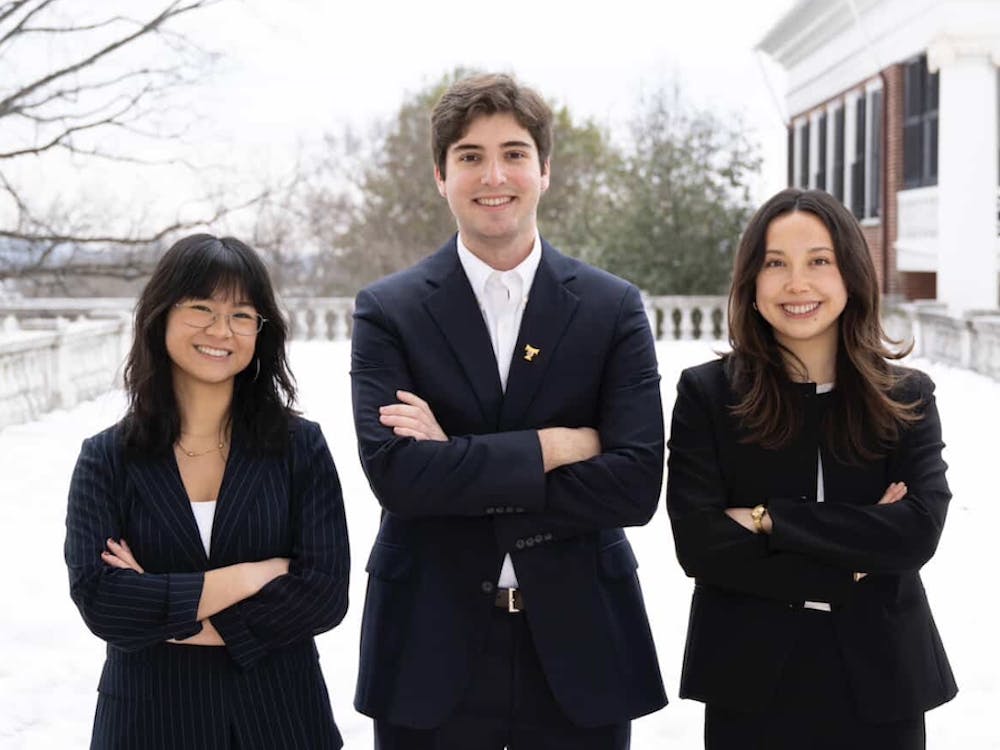Evolutionary biologist and author Richard Dawkins spoke to students, faculty and Charlottesville community members in Old Cabell Hall yesterday to discuss the importance of using science rather than the supernatural to explain world phenomena. Dawkins spoke before signing his new book, "The Magic of Reality."
Dawkins began by explaining that his newest book is intended for a younger audience than his other works. He spoke about the book's first chapter, addressing the question of who the first person was. Dawkins said if one traced human origin back 185 million generations, the ancestor would resemble a fish.
"There never was a first person," he said. "Everyone has to have parents, and every thing born has to be of the same species."
This paradox can be better understood by considering that evolution is a gradual process, Dawkins said. He compared this to the process of individual human growth, noting that people do not go to sleep as toddlers and wake up as teenagers.
Dawkins also discussed the origins of life and the possibility for life on other planets.
"If you believe life arises only once, origin of life must be a stupefying improbable event ... and then the theory [of origin of life] we are looking for has to be very implausible," he said.
Dawkins said this manner of thinking is very limiting. He said the vast number of stars within the universe mean there are also numerous planets available for life. To support life, these planets must reside within the "goldilocks zone" - not too far from the star and not too close, but just the right distance, Dawkins said.
"If the theory of life was a plausible one, then the universe would be teeming with life, [which] as a matter of fact I think it is," he said.
Dawkins also talked about the belief in miracles, describing them as the kind of magic people actually believe in.
"The supernatural is an incoherent nonsensical idea," Dawkins said. "Either it didn't really happen or we have exposed a shortcoming in present-day science."
Dawkins stressed the importance of thinking critically and not resorting to the supernatural for explanation. He called this manner of thinking lazy and defeatist, encouraging everyone to think critically and question the logic.
"The proper and brave response is to tackle [problems] head on," Dawkins said. "Miracles, magic and myths can be fun ... but the truth is more magical than any myth or made-up mystery. Science has its own magic, the magic of reality."
Fourth-year College student Enzo Chiariello said he appreciated that Dawkins is reaching out to a younger audience with his most recent work.
"I like the fact that it was geared to children [and] informing them how to question things and find the truth behind every day stuff," he said.






